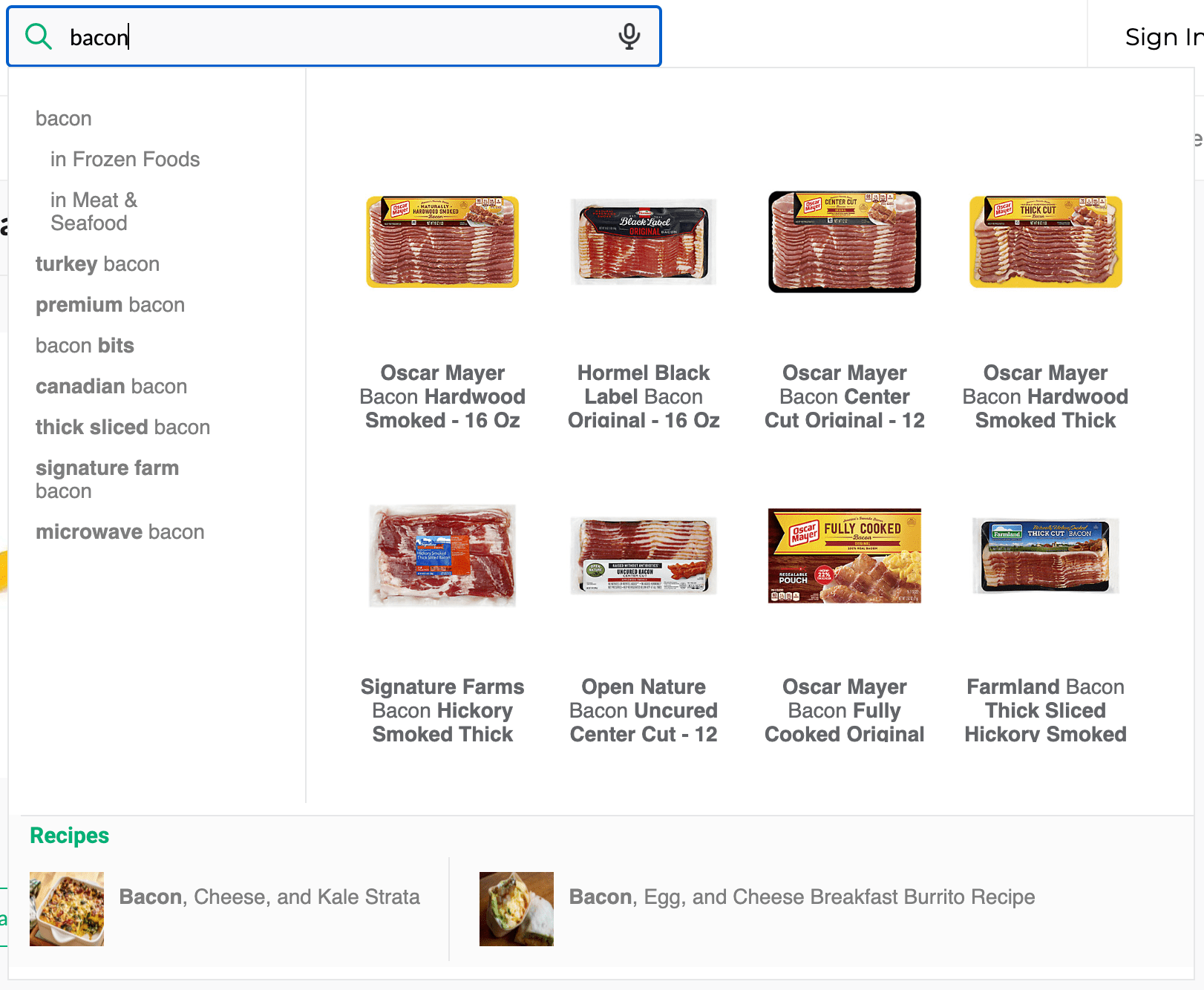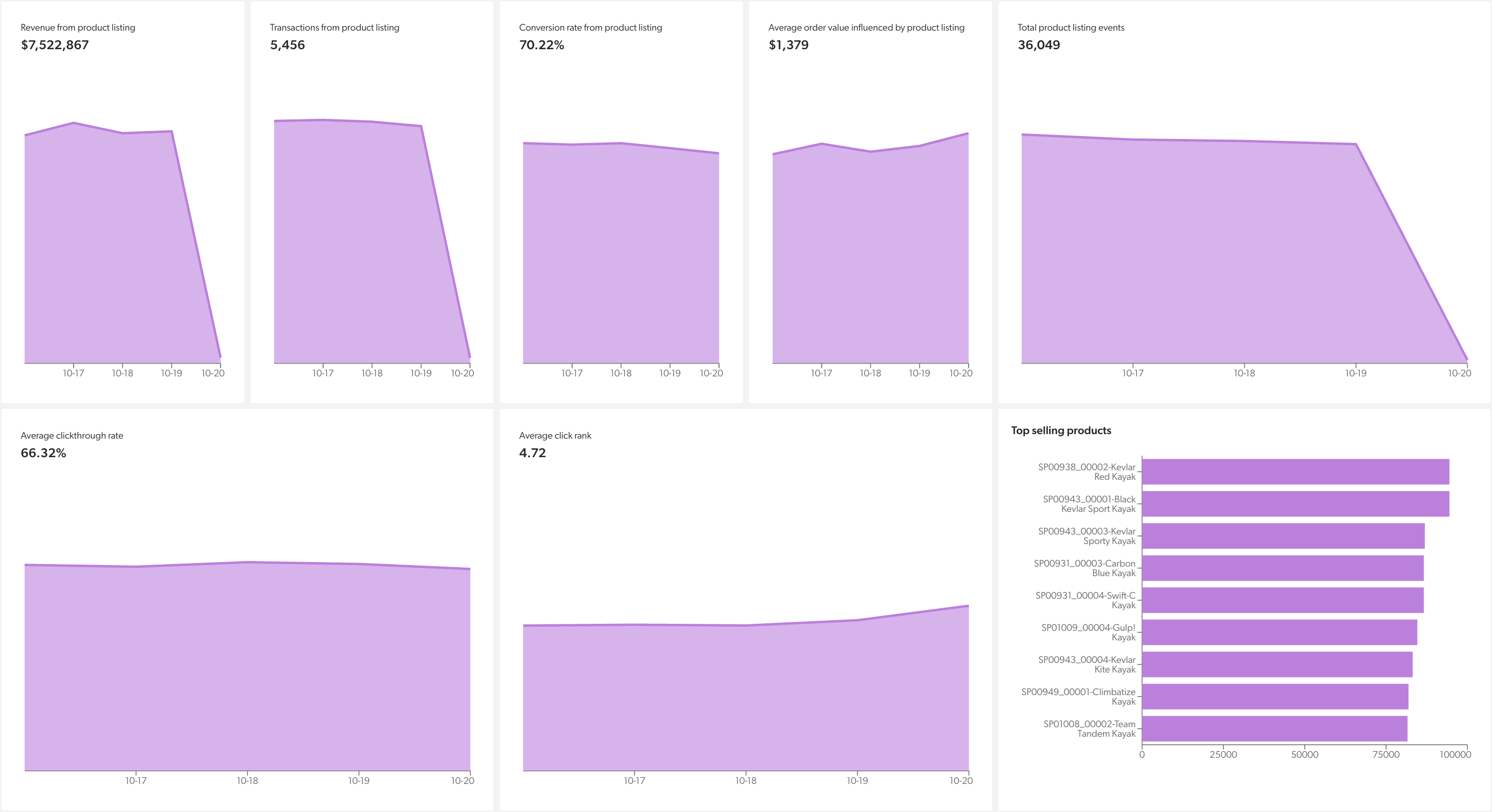Alternatives to Amazon Alexa for Business
1. Algolia
+Pros
- Proven search speed performance with documented sub-50ms response times.
- Hybrid vector-keyword architecture providing unique technical differentiation.
- Validated customer outcomes demonstrating measurable business impact.
-Cons
- Dependency on structured product data for optimal performance.
- Ongoing optimization requirements through biweekly relevance tuning cycles.
- Pricing transparency challenges particularly for enterprise tiers.
One highlighted feature and why it's amazing
Combines vector-based semantic understanding with traditional keyword search through a single API, enabling contextual understanding of ambiguous queries while maintaining exact-match capabilities for specific product searches.

Another highlighted feature of why it’s amazing
Operates through three integrated functions that enhance search relevance without manual intervention: Query Understanding, Retrieval, and Dynamic Re-Ranking.
2. Constructor Product Discovery
+Pros
- Proven enterprise customer success with documented revenue improvements
- Ecommerce-specific AI optimization with 97% attribute accuracy
- Hands-on support quality and collaborative partnership approach
-Cons
- High implementation complexity requiring substantial technical resources
- Non-transparent pricing structure
- Enterprise-only focus excluding smaller retailers
One highlighted feature and why it's amazing
Constructor's core product features center on AI-powered search optimization, personalized product discovery, and automated merchandising specifically designed for ecommerce revenue optimization.

Another highlighted feature of why it’s amazing
AI Shopping Assistant (ASA) integrates generative AI with personalization for conversational product discovery, enabling customers to describe needs naturally rather than using keyword-based search.
3. Coveo
+Pros
- Proven enterprise capabilities and measurable business impact
- Leader recognition in Gartner's Magic Quadrant
- Composable AI architecture and enterprise-scale security certifications
-Cons
- Significant implementation complexity requiring 6-9 month timelines
- Admin complexity requiring extensive learning
- Custom pricing model limiting cost transparency
One highlighted feature and why it's amazing
Combines predictive query suggestions with 1:1 personalization engines.

Another highlighted feature of why it’s amazing
Enables question-answering functionality grounded in product catalogs.
Other Alternatives
Elastic
Klevu AI Search
SearchAgent for Shopify
How We Researched This Guide
About This Guide: This comprehensive analysis is based on extensive competitive intelligence and real-world implementation data from leading AI vendors. StayModern updates this guide quarterly to reflect market developments and vendor performance changes.
365+ verified sources per analysis including official documentation, customer reviews, analyst reports, and industry publications.
- • Vendor documentation & whitepapers
- • Customer testimonials & case studies
- • Third-party analyst assessments
- • Industry benchmarking reports
Standardized assessment framework across 8 key dimensions for objective comparison.
- • Technology capabilities & architecture
- • Market position & customer evidence
- • Implementation experience & support
- • Pricing value & competitive position
Research is refreshed every 90 days to capture market changes and new vendor capabilities.
- • New product releases & features
- • Market positioning changes
- • Customer feedback integration
- • Competitive landscape shifts
Every claim is source-linked with direct citations to original materials for verification.
- • Clickable citation links
- • Original source attribution
- • Date stamps for currency
- • Quality score validation
Analysis follows systematic research protocols with consistent evaluation frameworks.
- • Standardized assessment criteria
- • Multi-source verification process
- • Consistent evaluation methodology
- • Quality assurance protocols
Buyer-focused analysis with transparent methodology and factual accuracy commitment.
- • Objective comparative analysis
- • Transparent research methodology
- • Factual accuracy commitment
- • Continuous quality improvement
Quality Commitment: If you find any inaccuracies in our analysis on this page, please contact us at research@staymodern.ai. We're committed to maintaining the highest standards of research integrity and will investigate and correct any issues promptly.